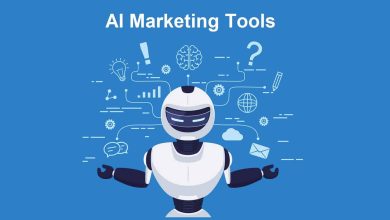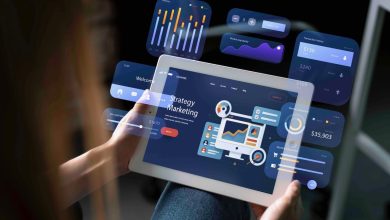
Marketing is undergoing a massive shift. AI is no longer a futuristic tool, it’s actively reshaping how brands interact with customers. Traditional, one-size-fits-all marketing is being replaced by personalised, dynamic engagement powered by real time data. Businesses that embrace AI-driven marketing strategies will create better customer experiences, while those that hesitate risk falling behind.
AI enables brands to move beyond basic segmentation and toward true personalisation, where each customer receives messages tailored to their unique behaviours and preferences.
Over the past decade, AI has evolved from an experimental concept to an indispensable part of modern marketing. Businesses now rely on AI to analyse massive datasets, uncover insights, and deliver highly targeted experiences at scale. This shift has made AI driven marketing strategies more accessible to companies of all sizes, not just tech giants.
How AI is changing marketing strategies
The acceleration of AI driven marketing strategies isn’t arbitrary- it’s responding to evolving consumer expectations. Consumers now expect highly relevant and timely interactions, and brands must deliver. The modern consumer expects brands to understand their preferences, anticipate their needs, and deliver value without unnecessary friction – expectations that traditional marketing methods struggle to meet at scale.
Traditional marketing methods treat every user the same way, showing identical messages regardless of who they are or what they’re doing. These generic approaches often appear at the wrong times, measure success by clicks rather than user value, and prioritise short-term engagement over long term satisfaction. This often results in frustrating user experiences, where customers are bombarded with irrelevant promotions.
However, this shift also brings privacy concerns. To build trust, companies must strike the right balance between personalisation and data protection. And with regulations like GDPR and CCPA in place, brands must ensure AI-driven marketing strategies align with evolving compliance requirements.
AI helps brands anticipate customer needs
The best marketing doesn’t just react, it anticipates. AI allows brands to predict what customers want before they ask. By analysing patterns in user behaviour, AI can present relevant product recommendations, optimise ad placements, and fine-tune messaging to match individual preferences.
Advances in machine learning have democratised the ability to process vast amounts of customer data instantly, making it easier to predict behaviours and tailor messaging accordingly. Real time data processing plays a key role in this evolution. AI enables brands to serve customers content at the right moment, increasing engagement and conversions. For instance, e-commerce platforms use AI-powered recommendation engines to suggest products based on browsing behaviour, increasing the likelihood of conversion. AI can even predict when a customer is likely to abandon their cart and trigger an automated yet personalised discount offer to encourage purchase completion.
Different users may respond to the same marketing efforts, such as popups, in completely different ways. AI can be used for ‘annoyance monitoring,’ tracking ‘rage closes’ to determine when a popup has caused irritation rather than adding any benefit. This information can then be used to make changes. For example, AI can adjust the frequency or timing of popups based on user interactions, ensuring they appear when they are most relevant rather than being intrusive.
Predictive analytics takes AI-driven personalisation even further. Businesses can identify trends and proactively address customer needs, creating smoother, more intuitive user experiences.
Retailers use AI to predict demand and personalise product suggestions based on past purchases, ensuring a seamless shopping experience. AI-powered automation ensures these insights are acted on instantly. For example, grocery delivery services use AI to anticipate when customers may need to restock household essentials, sending timely reminders or discounts to encourage repeat purchases.
AI vs human touch: Striking the right balance
AI brings efficiency, but human oversight is essential for maintaining authenticity. While automation can personalise experiences at scale, brands must ensure AI driven interactions feel natural, not robotic.
Transparency is key. Customers should understand when AI is involved in their experience and be given control over how their data is used. Ethical AI principles – such as clear opt-in options and robust privacy safeguards – help brands maintain trust while leveraging AI’s full potential. For example, some financial services companies use AI to personalise banking recommendations but ensure a human advisor is available when users have complex financial questions.
The future of AI driven marketing
AI is here to stay, and its role in marketing will only expand. However, success requires a thoughtful approach. Consumer expectations will continue to evolve, privacy regulations will tighten, and technology will advance. Brands that adapt and embrace AI responsibly will gain a competitive edge. Investing in AI-driven marketing solutions is no longer optional; it’s a requirement for staying competitive in today’s fast-paced digital landscape.
Marketers must focus on creating meaningful, customer-first experiences. AI isn’t just about efficiency, it’s about delivering relevance, value, and trust at every touchpoint. Those who get it right will build lasting relationships and stronger brands.





